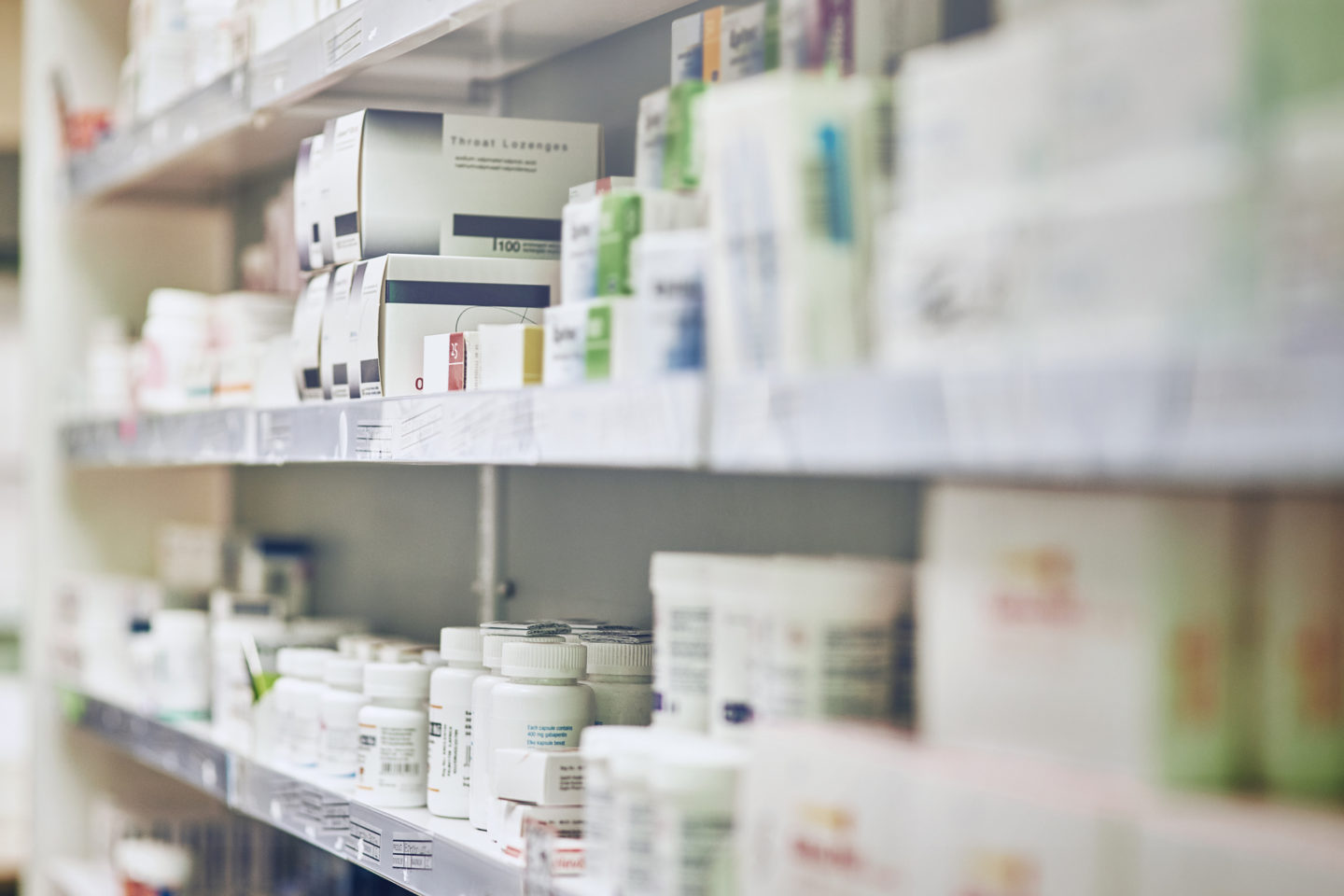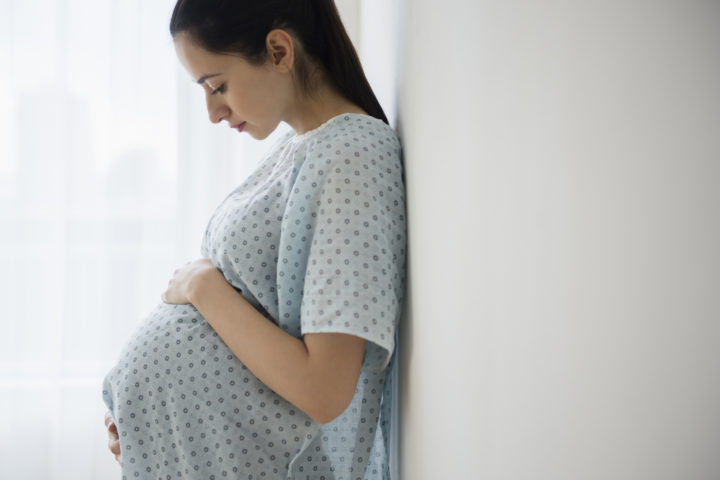There’s no reason to keep EC off the shelf.
Erin Matson was buying diapers for her infant daughter at her local Harris Teeter grocery store when she noticed something odd. On the shelf where the emergency contraception (EC) was supposed to be, there was a card in its place. The card, which Matson points out is the same size as the actual product, read: “To purchase this item, please take to the Pharmacy or to the Customer Service Desk in non-Pharmacy stores.”
To recap: emergency contraception is exactly what it sounds like – contraception that you use after any situation where unprotected sex involving a penis and a vagina has occurred. EC is safe, it’s not a threat to your fertility, and it’s not the abortion pill (which, by the way, is also safe). It delays the ovary from releasing an egg, so the egg can’t meet up with any sperm that’s hanging out and be fertilized by it. Plan B, the emergency contraceptive you’ve probably heard of, can be taken up to 120 hours (5 days) after the sexual encounter, but like most medicines, it’s most effective when taken as soon as possible.
According to the Food and Drug Administration (FDA), emergency contraception, like Tylenol, can be put on the shelves in a grocery store or pharmacy, and there’s no need to place it under lock and key (as it is in some stores), or obstruct someone from getting it by requiring them to ask for it from the pharmacist or other employee. Anyone can buy the pill, regardless of age or gender, without a prescription and without having to show ID. Retailers don’t have to stock EC, notes Matson, but that’s what makes what Harris Teeter is doing so odd. They are stocking it, but they’re simultaneously inhibiting access by adding the extra step of requiring someone to bring the card to the pharmacist. “Nowhere in the FDA regulations is it suggested that this be done,” Matson says.
In a time sensitive moment where you’re probably panicked, and even embarrassed, having to ask a store employee if you can have something like EC, which is supposed to be on the shelf, creates incredible vulnerability. What if the pharmacy is closed? What if you live in a small or rural community where there is only one pharmacy and you can’t get to another one?
Reproaction, a direct action group founded and directed by Matson and Pamela Merritt, aims to increase access to abortion and reproductive justice. Currently, the group is pushing for Harris Teeter to ditch the card and put Plan B back on the shelf via a petition, as well as actively picketing the store’s locations and Twitter campaigns (#donthideplanb and Henrietta the Plan B Dragon).
Harris Teeter stores can be found in 7 states and Washington DC, but it’s not the only place that access to EC is being obstructed. According to a survey conducted by the American Society for Emergency Contraception (ASEC), while 60% of stores which stock EC keep it on the shelf, so you can pick it up and pay for it, 57% lock it up (like Sudafed), and 30% impose an age restriction, which, again, isn’t something prescribed by the FDA. Independent pharmacies are also more likely to place restrictions on the purchase of EC.
“In some cases, it’s about genuine confusion,” says Kelly Cleland, a researcher at Princeton University and Executive Director of ASEC. “The FDA regulations have changed many times, so often it is about clarifying that this is what it’s saying now.” While there’s no embargo on men being able to purchase EC, Cleland says ASEC has gotten emails saying that pharmacies have turned men away. And, of course, there are the folks who refuse to sell EC based on moral and/or religious objections. “There’s a lot of cultural baggage around EC,” says Cleland. “Many people still believe that it makes you infertile, that it’s abortion, and that young people shouldn’t take it, and often, those people are in a gatekeeping role.”
EC is also expensive – $50 for the brand name, and $40 for the generic (there’s only one pill in the box). Because it’s so expensive, it’s considered a high risk item for theft, which is one reason store managers and pharmacists have offered for keeping it behind the counter. “I’ve seen a $55 vibrator at CVS next to an empty shelf of EC,” says Cleland, who also points out that the package EC comes in is hard to open – you can’t just reach in and take the pill out, so the theft argument isn’t exactly robust.
If you can’t access EC at your supermarket or pharmacy, you do have other options. Bedsider offers a pharmacy locator, so you can do a search of your area for another place to check for it. Family planning clinics offer EC for less than the price you’d find it for in the store. You can also buy EC online for a good price, says Cleland, who suggests sites like Afterpill.com and Project Ruby. Sites don’t always offer expedited shipping, however, so you might not be able to get it on time, but she recommends having EC on hand for emergencies. If you’re on campus, you can likely get EC from campus health services, and maybe even from a vending machine -schools like Dartmouth, Pomona, UC Davis, and others have these machines, which carry EC.
“It’s really hard to confront a pharmacist or a store employee about this when you need it,” says Cleland. “It feels like a crisis moment, but it can make an impact for yourself and others.” You can report issues of access to EC to ASEC, who has created a guide for pharmacists to learn about EC and the FDA regulations.
“You should feel rooted in your right to purchase the product,” says Matson. “There should be no demand for ID, it doesn’t matter if you’re undocumented, gender non-conforming, or if someone’s purchasing it on your behalf. No one has the right to deny you.”
Cover image courtesy of Getty Images




comments